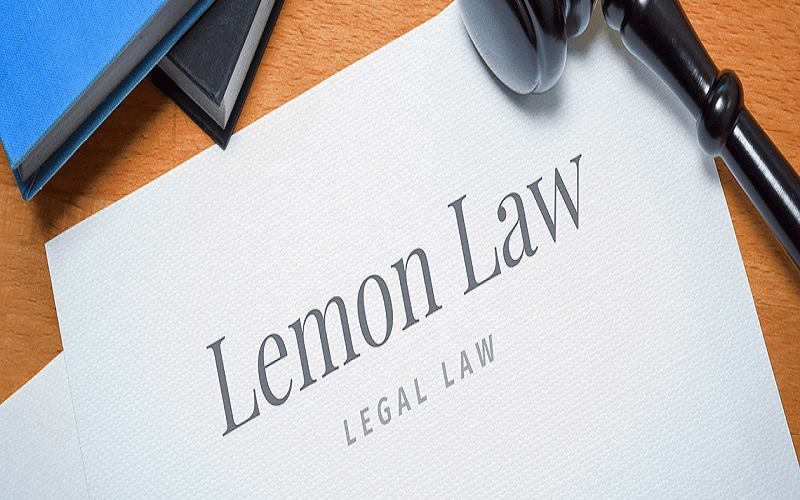Buying a car through a private sale can be an exciting yet nerve-wracking experience. While many people focus on the car’s price and condition, it’s crucial to understand your legal rights as a buyer. One important consideration is whether lemon laws apply to private sales. This article explores the key points you need to know about the lemon law and how it relates to buying a car from a private seller.
1. Definition of Lemon Law
Lemon laws are designed to protect consumers who purchase defective vehicles. These laws typically apply to new cars bought from dealerships and ensure that consumers can get a replacement or refund if the car has significant issues. The primary goal of lemon laws is to hold manufacturers accountable for producing faulty vehicles and to protect consumers from financial loss and safety risks. These laws vary by state but generally safeguard buyers investing in a new car, ensuring it meets basic quality and performance standards.
2. Application to Private Sales
One common question buyers have is whether lemon laws apply to private sales. Generally, lemon laws do not cover vehicles purchased through private sales. These laws are usually aimed at new vehicles purchased from licensed dealers. However, there are exceptions and variations depending on the state. Some states have specific protections for used cars, but these are often limited and less comprehensive than lemon laws for new cars. Buyers must know that their legal recourse is more limited when purchasing from a private seller, making due diligence crucial.
3. Implied Warranties
While lemon laws might not apply, buyers are still protected under implied warranties. An implied warranty is an unspoken, unwritten promise from the seller that the vehicle will meet certain standards of quality and reliability. There are two types of implied warranties: the warranty of merchantability and the warranty of fitness for a particular purpose. The former ensures that the car is fit for ordinary driving purposes, while the latter applies if the seller knows the buyer needs the car for a specific use. These warranties provide some protection, although proving a breach can be challenging.
4. “As Is” Sales
Many private car sales are conducted “as is,” meaning the buyer accepts the car in its current condition with no warranties. In an “as is” sale, the seller is not responsible for any problems that arise after the purchase. Buyers should be cautious with “as is” sales and thoroughly inspect the vehicle before finalizing the purchase. Getting a professional mechanic to examine the car is also advisable to uncover any hidden issues. Understanding the terms of an “as is” sale is crucial to avoid unexpected repair costs and ensure you make an informed purchase.
5. Legal Recourse
Even without lemon law protection, buyers still have legal options if they encounter significant problems with a car purchased from a private seller. If the seller committed fraud or misrepresented the car’s condition, the buyer could pursue legal action under consumer protection laws. For instance, if the seller knowingly sold a car with a serious defect and failed to disclose it, the buyer might have grounds for a lawsuit. Documenting all communications and keeping transaction records can strengthen your case if legal action becomes necessary.
Tips for Buying a Car in a Private Sale
To avoid complications and ensure a smooth transaction, follow these tips when buying a car from a private seller:
- Do your research: Determine the car’s fair market value and research common issues with the specific make and model.
- Inspect the Vehicle: Perform a thorough inspection or hire a professional mechanic to evaluate the car’s condition.
- Check the Vehicle History: Obtain a vehicle history report for past accidents, title issues, and maintenance records.
- Test Drive: Always take the car for a test drive to identify any potential problems with its performance.
- Get Everything in Writing: Ensure that all terms of the sale are documented in a written agreement.
Lemon Law vs. Consumer Protection Laws
Understanding the differences between lemon laws and general consumer protection laws can help you navigate legal recourse if you purchase a defective vehicle through a private sale. Here’s a breakdown of how these laws function and what protections they offer:
Lemon Laws
- Scope: Primarily cover new vehicles purchased from licensed dealers.
- Coverage: Typically do not apply to private sales, with few exceptions depending on the state.
- Remedies: Provide specific remedies like refunds or replacements for vehicles with significant, unrepairable defects.
- Process: Usually requires multiple repair attempts and a formal process to qualify for relief under the Lemon law.
- Limitations: Limited to serious defects impairing the vehicle’s use, safety, or value.
Consumer Protection Laws
- Scope: Broader and can cover a variety of goods and services, including vehicles sold privately.
- Coverage: Address fraudulent practices and misrepresentation by sellers in private sales.
- Remedies: These may include rescission of the sale, damages, and, in some cases, attorney fees.
- Process: Often involves filing a complaint with a consumer protection agency or taking legal action in small claims court.
- Limitations: Proof of fraud or misrepresentation is often required, which can be challenging.
Conclusion
While lemon laws typically do not apply to private sales, buyers are not entirely without protection. Understanding implied warranties and your rights can help you make a more informed decision. Always conduct due diligence before purchasing a car from a private seller to minimize risks and avoid future issues. If you encounter problems after the purchase, consult a legal professional to explore your options. For more information and assistance on lemon law issues, visit our website.

